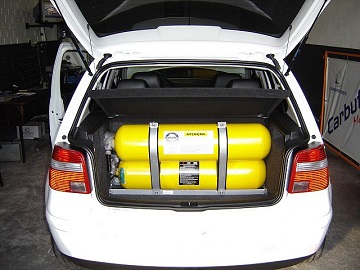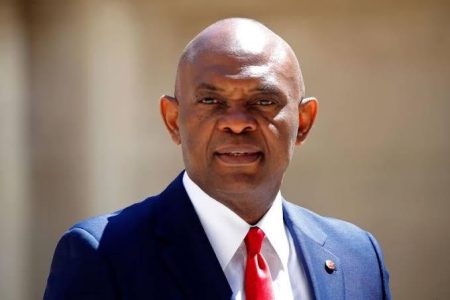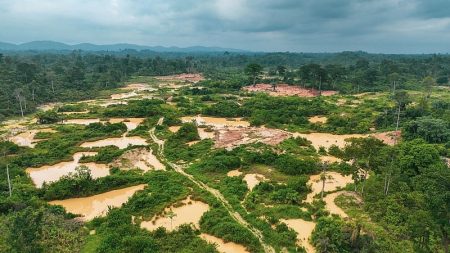Nigeria’s ambitious foray into alternative transportation fuels, spearheaded by the Presidential Compressed Natural Gas Initiative (PCNGI), has yielded substantial progress within its inaugural year, attracting over $500 million in investments and converting more than 50,000 vehicles to Compressed Natural Gas (CNG). This initiative, launched in May 2024 under President Bola Tinubu’s administration, aims to establish a sustainable transportation ecosystem by incentivizing the adoption of CNG and electric vehicles, facilitating investments in the alternative energy transport sector, and streamlining regulatory frameworks to accelerate growth. The PCNGI’s efforts have already generated over 10,000 direct jobs and spurred the establishment of 255 new vehicle conversion centers and 53 CNG dispensing daughter stations across the nation.
Prior to the PCNGI’s inception, CNG adoption in Nigeria was negligible, with a mere 11 CNG stations remaining from a 2017 pilot scheme by the Nigerian National Petroleum Company Limited (NNPCL). Public awareness and acceptance of CNG were low, hampered by widespread misinformation. The initial phase of the PCNGI focused on a comprehensive awareness campaign to address these challenges and educate the public on the benefits of CNG. This campaign, spanning from May to October 2024, laid the groundwork for the subsequent surge in CNG adoption. The transformation within a year has been remarkable, with the initiative successfully garnering significant investments, stimulating job creation, and drastically increasing the number of CNG vehicles on Nigerian roads.
The burgeoning CNG sector has witnessed a surge in private sector participation, playing a crucial role in infrastructure expansion. Companies like AY Shafa and Femadec have inaugurated new CNG daughter stations in Abuja, with ambitious plans to establish 30 additional stations within the next year. Femadec is also spearheading the development of CNG ecosystems within 20 universities, showcasing the initiative’s reach beyond traditional transportation hubs. Greenville, another key investor, is deploying 51 liquefied compressed natural gas (LCNG) stations across the North and South-East regions, including remote areas like Yola, further broadening access to CNG. Planned site activations in Port Harcourt, Ado-Ekiti, Lokoja, Aba, Enugu, and Abuja are slated to go live within the next two to four months, indicating the rapid pace of infrastructure development.
The NNPCL is also actively contributing to the expansion of CNG infrastructure, increasing its network from 12 to 20 CNG stations, with an additional 40 planned in the second phase of its rollout. Private sector players like Bovas and NIPCO are further bolstering the infrastructure landscape. Bovas is launching two modern CNG sites in Ibadan, while NIPCO aims to complete eight new stations, adding to its existing network of 23 operational stations. The Midstream and Downstream Gas Infrastructure Fund has further reinforced confidence in the sector by awarding equity investments to 10 new project developers, three of which specifically focus on CNG station development, supplementing the N123 billion already invested by the fund last year.
Despite the significant achievements, the PCNGI acknowledges that transitioning to a new energy paradigm requires patience and sustained effort. The decades-long reliance on petrol and diesel cannot be reversed overnight, and the PCNGI emphasizes the need for a gradual transition. The initiative remains committed to fulfilling President Tinubu’s promises to the Nigerian people, working diligently across the value chain to ensure the successful implementation of the CNG program. This involves addressing challenges such as queuing at CNG stations, which is a natural consequence of the unprecedented increase in CNG vehicle adoption. The PCNGI anticipates further growth in CNG vehicle numbers, projecting a rise from the current 50,000 to 100,000 in the near future.
The PCNGI views the initial skepticism and negative narratives surrounding the CNG initiative as expected hurdles in any transformative endeavor. They highlight the significant economic benefits of switching to CNG, with fuel cost reductions reaching up to 90% in some cases. The rapid growth in vehicle conversions and the increasing demand for CNG are testaments to the program’s effectiveness and the public’s growing acceptance of CNG as a viable alternative fuel. The PCNGI remains focused on long-term sustainability and emphasizes that the ongoing infrastructure development and expansion are crucial steps towards a cleaner and more efficient transportation future for Nigeria.














